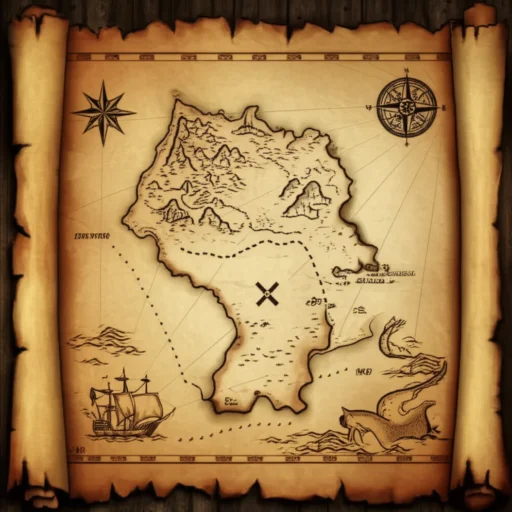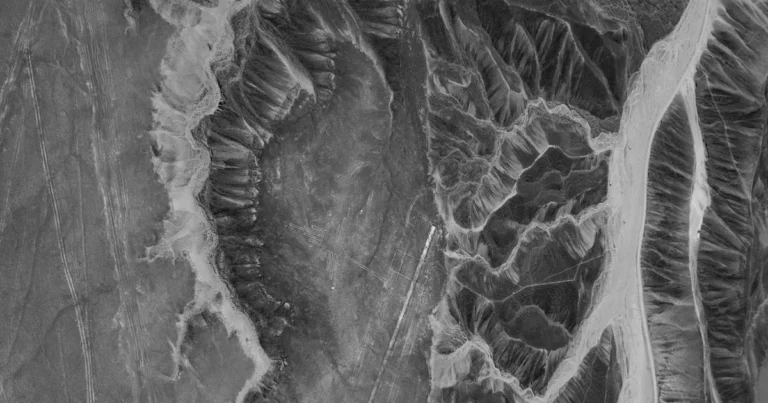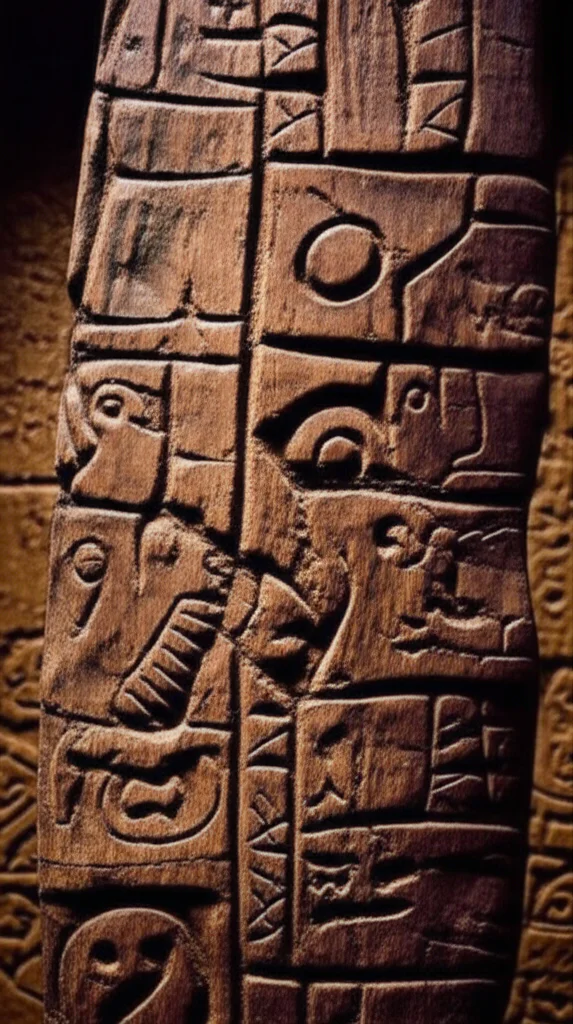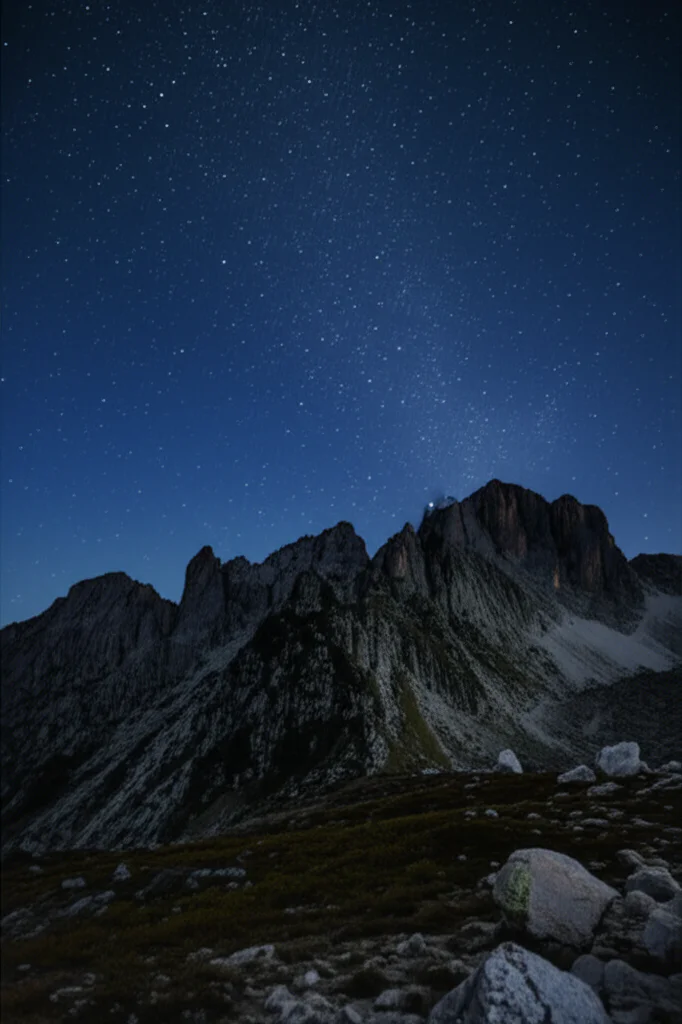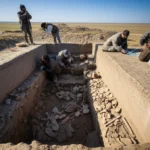Support our educational content for free when you purchase through links on our site. Learn more
Where Is the Lost City of Atlantis Located? 12 Theories Explored 🌊
Have you ever wondered if the lost city of Atlantis is more than just a myth? For centuries, this legendary civilization has captivated explorers, historians, and dreamers alike. From Plato’s ancient writings to modern-day sonar expeditions, the question remains: Where exactly is Atlantis located? In this deep dive, we unravel 12 of the most fascinating theories—from the volcanic ruins of Santorini to mysterious underwater formations in the Atlantic Ocean. Along the way, we’ll separate fact from fiction, explore why the myth endures, and reveal what cutting-edge archaeology tells us about this elusive city.
Stick around as we uncover surprising connections to real ancient civilizations, debunk popular myths like the Bimini Road, and even peek into future technologies that might one day solve the mystery once and for all. Ready to join us on this epic quest beneath the waves?
📚 Key Takeaways on the Lost City of Atlantis
- Plato’s dialogues are the sole original source of the Atlantis story, written as a philosophical allegory rather than historical fact.
- The Santorini volcanic eruption and Minoan civilization are the most plausible real-world inspirations behind the legend.
- Despite numerous theories, no credible archaeological evidence has confirmed Atlantis’s physical existence.
- The myth of Atlantis continues to inspire culture, science, and exploration worldwide.
- Modern underwater archaeology and satellite technology keep the search alive, fueling new discoveries beyond Atlantis itself.
Ready to explore more mysteries of the deep? Check out our curated books and documentaries on ancient civilizations and underwater archaeology to fuel your curiosity!
Table of Contents
- ⚡️ Quick Tips and Fascinating Facts About Atlantis
- 🌊 The Mysterious Origins of Atlantis: Plato’s Timeless Tale
- 🔍 Did Atlantis Really Exist? Unraveling the Truth Behind the Legend
- 🗺️ 12 Theories on Where Atlantis Might Be Hidden
- 1. The Mediterranean Hypothesis: Santorini and Thera
- 2. The Atlantic Ocean Theory: Azores and Beyond
- 3. The Caribbean Connection: Bimini Road and Bahamas
- 4. The Sahara Desert Theory: Lost Civilization Beneath the Sands
- 5. Antarctica’s Hidden Past: Atlantis Beneath the Ice?
- 6. The Caribbean and Florida Shelf Hypothesis
- 7. The Azores Archipelago: Mid-Atlantic Mystery
- 8. The Canary Islands Theory
- 9. The Black Sea Hypothesis
- 10. The Indonesian Archipelago Theory
- 11. The Bermuda Triangle Connection
- 12. Mythical or Metaphorical: Atlantis as an Allegory
- 🧙♂️ The Enduring Myths and Cultural Impact of Atlantis
- 🔦 Modern Expeditions and Scientific Searches for Atlantis
- 🔮 Could We Ever Discover Atlantis? The Future of Underwater Archaeology
- 📚 Key Takeaways on the Lost City of Atlantis
- 🧑💼 Geoffrey Giller: The Man Behind the Atlantis Research
- 🌐 Related Content and Further Reading on Atlantis
- 📝 Conclusion: Where Does Atlantis Stand Today?
- 🔗 Recommended Links for Atlantis Enthusiasts
- ❓ Frequently Asked Questions About Atlantis
- 📖 Reference Links and Sources
Hello, fellow history detectives! Welcome to History Hidden™, where we, your expert team of historians, dig up the most fascinating stories buried by time. Today, we’re tackling one of the biggest legends of all: the lost city of Atlantis. Where is it? Did it even exist? Grab your snorkel and a healthy dose of skepticism, because we’re diving deep into the mystery. Our team has spent years poring over ancient texts and modern sonar maps, and we’re excited to share what we’ve found about Atlantis. This tale is a cornerstone of our Mythology Stories and a true giant in the world of Folklore and Legends.
⚡️ Quick Tips and Fascinating Facts About Atlantis
Before we plunge into the depths, let’s get our bearings with some quick facts. What do we really know about this legendary lost city?
| Fact Category | Details |
|---|---|
| Primary Source 📜 | The only original accounts of Atlantis come from the Greek philosopher Plato in his dialogues Timaeus and Critias, written around 360 B.C. |
| Alleged Location 📍 | Plato described it as an island “in front of the mouth which you Greeks call… ‘the Pillars of Heracles’,” which is widely believed to be the Strait of Gibraltar. |
| Supposed Timeline ⏳ | The story is set 9,000 years before Plato’s time, making it an incredibly ancient civilization even for the ancient Greeks. |
| The Downfall 💥 | Atlantis was said to have been destroyed in “a single day and night of misfortune” by violent earthquakes and floods, sinking into the sea. |
| Fictional or Factual? 🤔 | The overwhelming consensus among modern historians and archaeologists is that Atlantis is a fictional creation by Plato, intended as a philosophical allegory. |
| Enduring Legacy ✨ | Despite being a myth, Atlantis has inspired countless books, movies (like Disney’s Atlantis: The Lost Empire), and even real-life expeditions. |
🌊 The Mysterious Origins of Atlantis: Plato’s Timeless Tale
So, where did this whole incredible story come from? Let’s travel back to ancient Athens, circa 360 B.C. The philosopher Plato is writing two of his famous dialogues, the Timaeus and the Critias. In these texts, a character named Critias recounts a story he heard from his grandfather, who in turn heard it from the great Athenian statesman Solon. Solon, the story goes, learned of Atlantis from Egyptian priests.
According to Plato’s account, Atlantis was a formidable naval power. It was an island continent larger than ancient Libya and Asia Minor combined, situated in the Atlantic Ocean. The city itself was a marvel of engineering, built with concentric rings of land and water connected by massive canals. Its rulers, descended from the sea god Poseidon, commanded immense wealth and military might, including a vast army and a fleet of warships.
But, as with many great tales, pride came before the fall. The Atlanteans, once noble, became corrupted by their power and greed. They launched an ambitious campaign to conquer Athens and the rest of the Mediterranean world. However, the virtuous and disciplined ancient Athenians repelled the invasion. Shortly after their defeat, the gods turned against Atlantis. In a cataclysmic event, the island was wracked by earthquakes and floods and sank beneath the waves, lost forever.
🔍 Did Atlantis Really Exist? Unraveling the Truth Behind the Legend
This is the million-dollar question, isn’t it? For centuries, explorers, adventurers, and dreamers have been captivated by the idea of a real, historical Atlantis. But what does the evidence say?
Here at History Hidden™, we believe in following the facts. And the hard truth is…
❌ There is no credible archaeological or geological evidence to support the existence of Atlantis as described by Plato.
Most scholars today agree that Plato invented the story of Atlantis. As Discover Magazine puts it, “The overwhelming consensus among archaeologists and historians is that Atlantis is a myth, a fictional creation of Plato.” He wasn’t writing a history textbook; he was crafting a powerful allegory.
The Purpose of the Myth
So, if it’s not real, why did Plato make it up?
- A Cautionary Tale: Atlantis serves as a powerful warning against hubris, imperialism, and moral decay. The story illustrates what happens when a society becomes too arrogant and powerful, losing sight of virtue.
- A Philosophical Tool: Plato used Atlantis as a foil to his vision of an ideal state, which he represented with a fictionalized, ancient Athens. By showing the defeat of the mighty but corrupt Atlantis by the smaller, more virtuous Athens, he was making a philosophical point about the best way to govern a society.
Despite this scholarly consensus, the legend persists. Why? Because it’s a fantastic story! The idea of a lost, advanced civilization swallowed by the sea taps into our collective imagination and our love for a good mystery.
🗺️ 12 Theories on Where Atlantis Might Be Hidden
Even though it’s likely a myth, that hasn’t stopped people from trying to pinpoint a real-world location for Atlantis. The search has become a legend in itself! Let’s explore some of the most popular—and sometimes outlandish—theories.
1. The Mediterranean Hypothesis: Santorini and Thera
This is perhaps the most scientifically plausible theory. It doesn’t suggest Atlantis was real, but that Plato’s story was inspired by a real event: the catastrophic volcanic eruption on the island of Thera (modern-day Santorini) around 1600 B.C.
- The Event: This massive eruption, one of the largest in human history, obliterated a significant portion of the island and triggered enormous tsunamis that would have devastated coastal communities across the Aegean, including the advanced Minoan civilization on Crete.
- The Connection: The collapse of the Minoan civilization, a powerful seafaring culture, in the wake of a natural disaster has striking parallels to Plato’s tale. Archaeologists at Akrotiri on Santorini have unearthed a remarkably well-preserved Minoan city buried in ash, offering a glimpse into this lost world.
2. The Atlantic Ocean Theory: Azores and Beyond
This theory takes Plato at his word: Atlantis was in the Atlantic, “beyond the Pillars of Hercules.” Proponents, like the 19th-century writer Ignatius L. Donnelly, suggested that Atlantis was a full-fledged continent in the middle of the Atlantic that sank.
- The Problem: Modern oceanography and our understanding of plate tectonics have thoroughly debunked the idea of a recently sunken continent in the Atlantic. The ocean floor shows no evidence of such a landmass.
3. The Caribbean Connection: Bimini Road and Bahamas
In the 1960s, divers discovered a submerged rock formation off the coast of Bimini in the Bahamas that looked remarkably like a paved road. This “Bimini Road” quickly became linked to the Atlantis legend, partly thanks to predictions by the psychic Edgar Cayce.
- The Reality: Geologists have studied the Bimini Road extensively and concluded that it is a natural formation of beachrock that has fractured over time into rectangular blocks. It’s a fascinating geological feature, but not a man-made road to a lost city.
4. The Sahara Desert Theory: Lost Civilization Beneath the Sands
Some theories point to the Richat Structure in Mauritania, a massive, circular geological formation in the Sahara Desert. Its concentric rings bear a superficial resemblance to Plato’s description of the city of Atlantis.
- The Catch: Geologists have determined the Richat Structure is a natural geological dome that has eroded over time. There is no evidence of a lost civilization there.
5. Antarctica’s Hidden Past: Atlantis Beneath the Ice?
This fringe theory, popularized by authors like Charles Hapgood, suggests that a massive shift in the Earth’s crust thousands of years ago moved Antarctica from a more temperate location to the South Pole, burying the Atlantean civilization under miles of ice.
- The Science: This idea is not supported by geological evidence. The theory of plate tectonics shows that continents move extremely slowly over millions of years, not in a sudden, catastrophic shift.
6. The Caribbean and Florida Shelf Hypothesis
Similar to the Bimini Road theory, this idea posits that Atlantis was located on land that is now submerged on the continental shelves of the Caribbean or off the coast of Florida. Proponents argue that sea levels were much lower during the last Ice Age.
- The Evidence: While it’s true that sea levels were lower, extensive sonar mapping of these areas has not revealed any evidence of a large, advanced civilization.
7. The Azores Archipelago: Mid-Atlantic Mystery
The Azores, a group of volcanic islands in the mid-Atlantic, have been suggested as the mountaintops of a sunken Atlantis. This was another key part of Ignatius Donnelly’s theory.
- The Geology: The Azores are the peaks of massive underwater volcanoes rising from the Mid-Atlantic Ridge. They are not the remnants of a sunken continent.
8. The Canary Islands Theory
Located in the Atlantic just off the coast of Africa, the Canary Islands are another popular candidate. Some researchers have tried to link the indigenous Guanche people of the Canaries to the survivors of Atlantis.
- The Archaeology: Archaeological and genetic studies show the Guanches were most closely related to the Berber peoples of North Africa, with no connection to a mythical advanced civilization.
9. The Black Sea Hypothesis
This theory suggests that the story of Atlantis is a distant memory of the flooding of the Black Sea basin around 5600 B.C. At the end of the Ice Age, the Mediterranean Sea breached a natural dam at the Bosporus, catastrophically flooding what was then a smaller freshwater lake and displacing the civilizations along its shores.
- The Link: While a dramatic and real event, the timeline and location are significantly different from Plato’s account.
10. The Indonesian Archipelago Theory
A more recent theory suggests that Atlantis was located in the South China Sea, and the Indonesian archipelago is what remains of it after a catastrophic rise in sea level at the end of the last Ice Age.
- The Challenge: This theory contradicts Plato’s placement of Atlantis in the Atlantic and lacks direct archaeological evidence.
11. The Bermuda Triangle Connection
In the 1970s, author Charles Berlitz famously linked Atlantis to the mysteries of the Bermuda Triangle, suggesting the lost city’s advanced energy crystals were responsible for the strange disappearances in the region.
- The Verdict: This is pure speculation and pseudoscience, combining two popular mysteries without any factual basis.
12. Mythical or Metaphorical: Atlantis as an Allegory
This brings us back to the most likely answer. Atlantis isn’t on any map because it was never a physical place. It was a thought experiment, a story created by one of history’s greatest thinkers to explore timeless themes of power, corruption, and justice.
🧙♂️ The Enduring Myths and Cultural Impact of Atlantis
Whether real or not, the story of Atlantis has had a colossal impact on Western culture. It’s a tale that has been retold and re-imagined for over two millennia.
- In Literature: From Sir Francis Bacon’s New Atlantis to Jules Verne’s Twenty Thousand Leagues Under the Sea, authors have used the legend to explore utopian ideals and the mysteries of the deep.
- In Film and TV: The legend has been the basis for countless adventures, from the 1970s TV series Man from Atlantis to the blockbuster movie Aquaman (2018), which depicts a technologically advanced underwater kingdom.
- In Video Games: Gamers have explored various interpretations of the lost city in titles like the Atlantis series and Assassin’s Creed Odyssey.
The myth of Atlantis speaks to a deep human desire for a lost golden age, a paradise that was tragically destroyed. It’s a story that continues to fuel our imagination and our quest for discovery.
🔦 Modern Expeditions and Scientific Searches for Atlantis
Despite the lack of evidence, the search for Atlantis continues. Modern technology has given explorers unprecedented tools to map the ocean floor.
- Sonar Mapping: High-resolution sonar can create detailed maps of the seabed, revealing shipwrecks and geological formations. So far, no lost cities.
- Satellite Archaeology: Satellites can help identify potential sites on land. In 2011, a team using satellite imagery claimed to have found Atlantis in the mud flats of southern Spain, near Cádiz. However, these claims have been widely disputed by other archaeologists.
- Underwater Archaeology: Advanced submersibles and ROVs (Remotely Operated Vehicles) allow archaeologists to explore depths previously unreachable.
The fantastic documentary embedded in this article, “Atlantis Found: The Search for the Lost City” by the HISTORY channel, provides a thrilling look at how modern researchers are using this technology to investigate the Santorini hypothesis. You can watch it at #featured-video.
🔮 Could We Ever Discover Atlantis? The Future of Underwater Archaeology
So, will we ever find it? If Atlantis is a physical place, as described by Plato, then it’s highly unlikely. The geological and archaeological records simply don’t support its existence.
However, the search for Atlantis is valuable in itself. It pushes the boundaries of underwater exploration and technology. In their quest for a mythical city, explorers have made countless other discoveries, from ancient shipwrecks to new marine species. The legend of Atlantis, in a way, fuels real scientific discovery.
Perhaps the real “lost city” isn’t a place, but the knowledge and stories of countless real coastal civilizations that were lost to rising sea levels and natural disasters throughout human history. The search for Atlantis is, in a way, a search for them.
📚 Key Takeaways on the Lost City of Atlantis
Let’s boil it all down. What are the essential things to remember about Atlantis?
- ✅ Plato is the sole original source. Every story about Atlantis traces back to his dialogues, Timaeus and Critias.
- ❌ It’s almost certainly a myth. The vast majority of historians and scientists agree that Atlantis was a fictional allegory created by Plato.
- ✅ The Santorini/Minoan theory is the most plausible inspiration. The volcanic destruction of Thera is a real historical event that shares many parallels with Plato’s story.
- ❌ No physical evidence has ever been found. Despite countless searches, no credible remains of a lost continent or city have been discovered in the Atlantic or anywhere else.
- ✅ The legend has a huge cultural impact. The story of Atlantis continues to inspire art, literature, and film, reflecting our fascination with lost worlds and ancient mysteries.
🧑💼 Geoffrey Giller: The Man Behind the Atlantis Research
When diving into complex topics like this, we always look to the experts. Journalist Geoffrey Giller, who has written extensively on the topic for publications like Discover Magazine, provides a clear-headed perspective. He emphasizes that while the search for Atlantis can be exciting, it’s crucial to separate fact from fiction. Giller’s work highlights that Plato’s story was likely an invention to make a philosophical point about the dangers of imperialism. His research reminds us that while the myth is captivating, the real history of ancient civilizations is just as fascinating.
🌐 Related Content and Further Reading on Atlantis
If your curiosity is piqued, there’s a whole ocean of information to explore! Here are a few topics we at History Hidden™ recommend diving into next:
- The Minoan Civilization: Learn about the real, advanced Bronze Age culture that may have inspired the Atlantis legend.
- Underwater Archaeology: Discover the incredible science of finding and preserving history beneath the waves.
- The Seven Wonders of the Ancient World: Explore other legendary structures and the stories behind them.
- Mythical Creatures: From the Kraken to the Leviathan, what other legends has the sea inspired?
📝 Conclusion: Where Does Atlantis Stand Today?
After our deep dive into the legend, the history, and the many theories surrounding Atlantis, what can we confidently say? The lost city of Atlantis remains one of the most captivating myths ever told—a story born from the fertile mind of Plato, designed to teach lessons about power, hubris, and the fate of civilizations.
Despite centuries of speculation, no credible archaeological evidence has surfaced to prove Atlantis was a real place. The most plausible historical inspiration is the Minoan civilization on Santorini, devastated by a volcanic eruption, but even this is a hypothesis rather than fact.
The enduring allure of Atlantis lies not in its physical reality but in its symbolic power. It reminds us how stories shape culture, inspire exploration, and fuel our imagination. The search for Atlantis has driven advances in underwater archaeology and kept alive a sense of wonder about the mysteries beneath the waves.
So, is Atlantis real? Probably not as Plato described it. But its legend is very real—and that’s a treasure worth cherishing.
🔗 Recommended Links for Atlantis Enthusiasts
Ready to explore more about Atlantis and related mysteries? Check out these highly recommended books and resources that have inspired our research:
- Atlantis: The Antediluvian World by Ignatius L. Donnelly — Amazon
- The Atlantis Encyclopedia by Frank Joseph — Amazon
- The Lost City of Atlantis: A History of the Legend by Gavin Menzies — Amazon
- Santorini: Volcano, Tsunami, and Archaeology by Walter L. Friedrich — Amazon
- Underwater Archaeology: The NAS Guide to Principles and Practice by Nautical Archaeology Society — Amazon
❓ Frequently Asked Questions About Atlantis
What evidence supports the existence of Atlantis?
There is no direct archaeological or geological evidence confirming Atlantis as a real city or continent. The story originates solely from Plato’s dialogues Timaeus and Critias. While some suggest the Minoan eruption on Santorini inspired the tale, this remains speculative. Modern scientific consensus treats Atlantis as a myth or allegory rather than a historical fact.
Has Atlantis been discovered in the Mediterranean Sea?
No verified discovery of Atlantis has been made in the Mediterranean. The Santorini eruption theory is the strongest link, but the archaeological site at Akrotiri does not match Plato’s description of Atlantis as a vast island continent. Other Mediterranean locations like Crete, Malta, and Tartessos have been proposed but lack conclusive evidence.
Could Atlantis be located near the Azores Islands?
The Azores have been suggested as remnants of Atlantis due to their mid-Atlantic location and volcanic origins. However, geological studies show the Azores are volcanic islands formed by tectonic activity and not the remains of a sunken continent. No archaeological evidence supports this theory.
What ancient texts describe the lost city of Atlantis?
The only ancient texts describing Atlantis are Plato’s Timaeus and Critias. These dialogues present Atlantis as a powerful island nation that sank beneath the sea. Other ancient writers mention Atlantis only in passing or debate its historicity, but no other primary sources provide detailed accounts.
Is Atlantis connected to any real ancient civilizations?
Atlantis may have been inspired by real civilizations such as the Minoans of Crete and Santorini, known for their advanced culture and sudden destruction by natural disaster. Some theories link Atlantis to Tartessos in Spain or other ancient cultures, but these connections are speculative and not supported by definitive evidence.
Why do some researchers believe Atlantis sank underwater?
Plato’s narrative describes Atlantis being destroyed by earthquakes and floods in a single day and night, sinking beneath the sea. This cataclysmic event has led to theories that Atlantis was a real place lost to rising sea levels or natural disasters. However, no geological evidence supports a recent sunken continent or city matching Atlantis’s description.
Are there any modern expeditions searching for Atlantis?
Yes! Modern expeditions use sonar mapping, satellite imagery, and underwater archaeology to search for Atlantis or related ancient sites. While no conclusive discoveries have been made, these efforts have advanced marine archaeology and uncovered many other important underwater sites. The search continues, fueled by curiosity and technological progress.
📖 Reference Links and Sources
For those who want to verify facts or dive deeper, here are some authoritative sources:
- Discover Magazine: Where is the Lost City of Atlantis and Does It Even Exist?
- Wikipedia: Atlantis
- Marine Insight: Top 10 Amazing Facts About the Lost City of Atlantis
- National Geographic: Santorini and the Minoan Eruption
- Nautical Archaeology Society: Underwater Archaeology
We hope you enjoyed this fascinating journey into the legend of Atlantis! If you want to keep uncovering hidden history, be sure to explore our Folklore and Legends and Mythology Stories sections. Until next time, keep your eyes on the horizon and your mind open to the mysteries of the past! 🌍🔎
